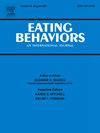Effects of a shared activities parenting intervention on weight outcomes in middle childhood: An exploratory study
IF 2.4
3区 医学
Q2 PSYCHIATRY
引用次数: 0
Abstract
General parenting interventions without an explicit focus on weight-related constructs have demonstrated lasting effects on child weight outcomes. However, well-established parenting interventions are time and resource intensive, which has limited their ability to transition to real-world delivery. This exploratory study examined whether Play With Me, a pilot at-home play-based general parenting intervention, affected weight outcomes in middle childhood. The intervention provided evidence-based parenting guidance that parents implemented in shared activities with their four-to-five-year-old children. Two years following the intervention, a follow-up survey was sent to families who had participated (N = 31), and parents (n = 27) reported child height and weight when children were 6.9 ± 0.6 years old. Children in the intervention group had a lower body mass index (BMI) in middle childhood, adjusting for baseline BMI, age, and sex (d = 0.52). Results were similar when examining BMI z-scores, percentiles, and overweight status, with children in the intervention group being less likely to meet clinical criteria for overweight at middle childhood follow-up than children in the control group (9.10 % intervention, 37.50 % control, V = 0.32). These exploratory findings add to the evidence supporting causal links between general parenting and child weight, extend this evidence to an interactive at-home intervention delivery model, and indicate that future rigorous, well-powered trials are needed to test whether results replicate and elucidate mechanisms through which general parenting may promote healthy child growth trajectories.
共同活动父母干预对儿童中期体重结局的影响:一项探索性研究
没有明确关注体重相关结构的一般育儿干预已证明对儿童体重结果有持久影响。然而,成熟的育儿干预措施需要大量的时间和资源,这限制了它们过渡到实际分娩的能力。本探索性研究考察了“和我一起玩”(Play With Me)这一以家庭游戏为基础的一般育儿干预试点是否会影响儿童中期的体重结果。该干预措施提供了基于证据的育儿指导,父母在与4至5岁的孩子共同参与的活动中实施这些指导。干预2年后,对参与调查的家庭(N = 31)进行随访调查,27名家长在儿童6.9±0.6岁时报告儿童身高和体重。经基线BMI、年龄和性别调整后,干预组儿童在儿童期中期的体重指数(BMI)较低(d = 0.52)。在检查BMI z分数、百分位数和超重状况时,结果相似,干预组儿童在儿童中期随访时符合临床超重标准的可能性低于对照组儿童(干预组9.10%,对照组37.50%,V = 0.32)。这些探索性发现增加了支持普通父母教养与儿童体重之间因果关系的证据,将这一证据扩展到交互式家庭干预模式,并表明未来需要严格、有力的试验来检验结果是否重复并阐明普通父母教养可能促进儿童健康成长轨迹的机制。
本文章由计算机程序翻译,如有差异,请以英文原文为准。
求助全文
约1分钟内获得全文
求助全文
来源期刊

Eating behaviors
Multiple-
CiteScore
4.20
自引率
3.60%
发文量
65
审稿时长
60 days
期刊介绍:
Eating Behaviors is an international peer-reviewed scientific journal publishing human research on the etiology, prevention, and treatment of obesity, binge eating, and eating disorders in adults and children. Studies related to the promotion of healthy eating patterns to treat or prevent medical conditions (e.g., hypertension, diabetes mellitus, cancer) are also acceptable. Two types of manuscripts are encouraged: (1) Descriptive studies establishing functional relationships between eating behaviors and social, cognitive, environmental, attitudinal, emotional or biochemical factors; (2) Clinical outcome research evaluating the efficacy of prevention or treatment protocols.
 求助内容:
求助内容: 应助结果提醒方式:
应助结果提醒方式:


